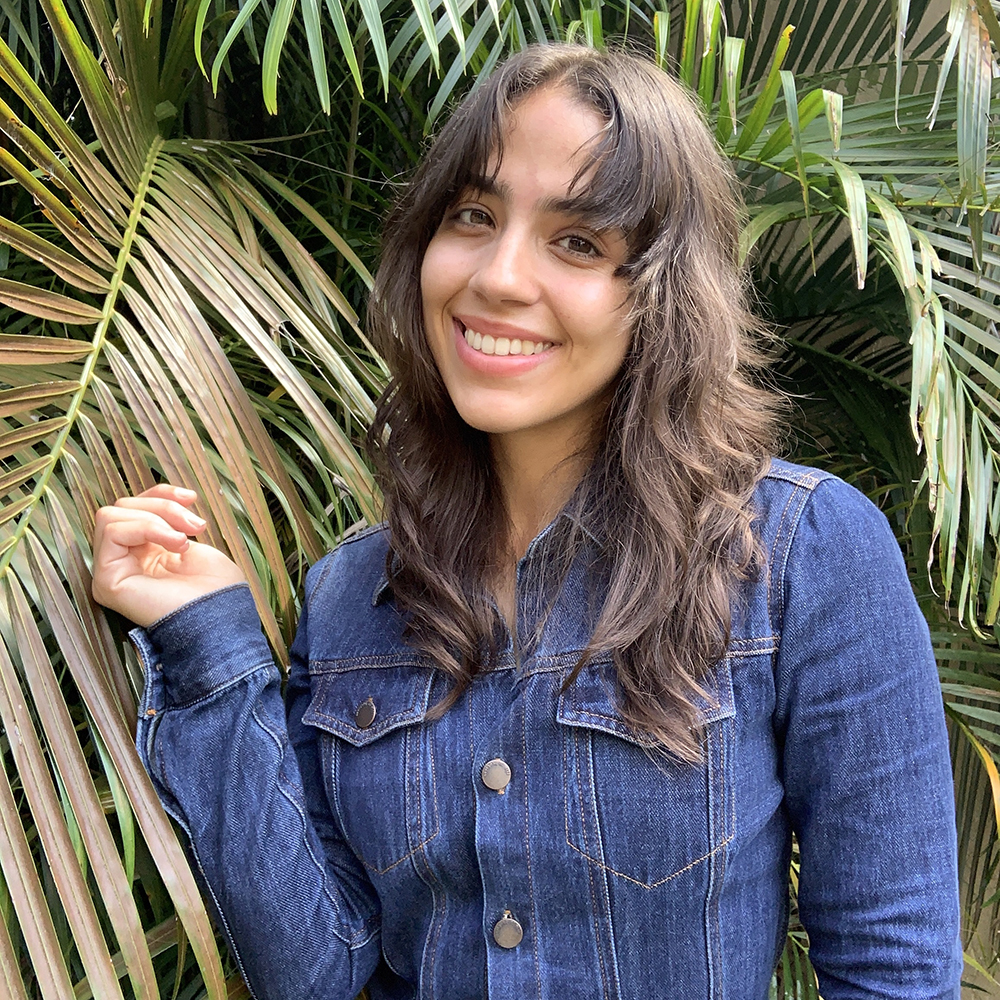ACE INTERVIEW: Abbie Richards on Combating Misinformation As a Young Person
Raquel Martinez
|September 9, 2021
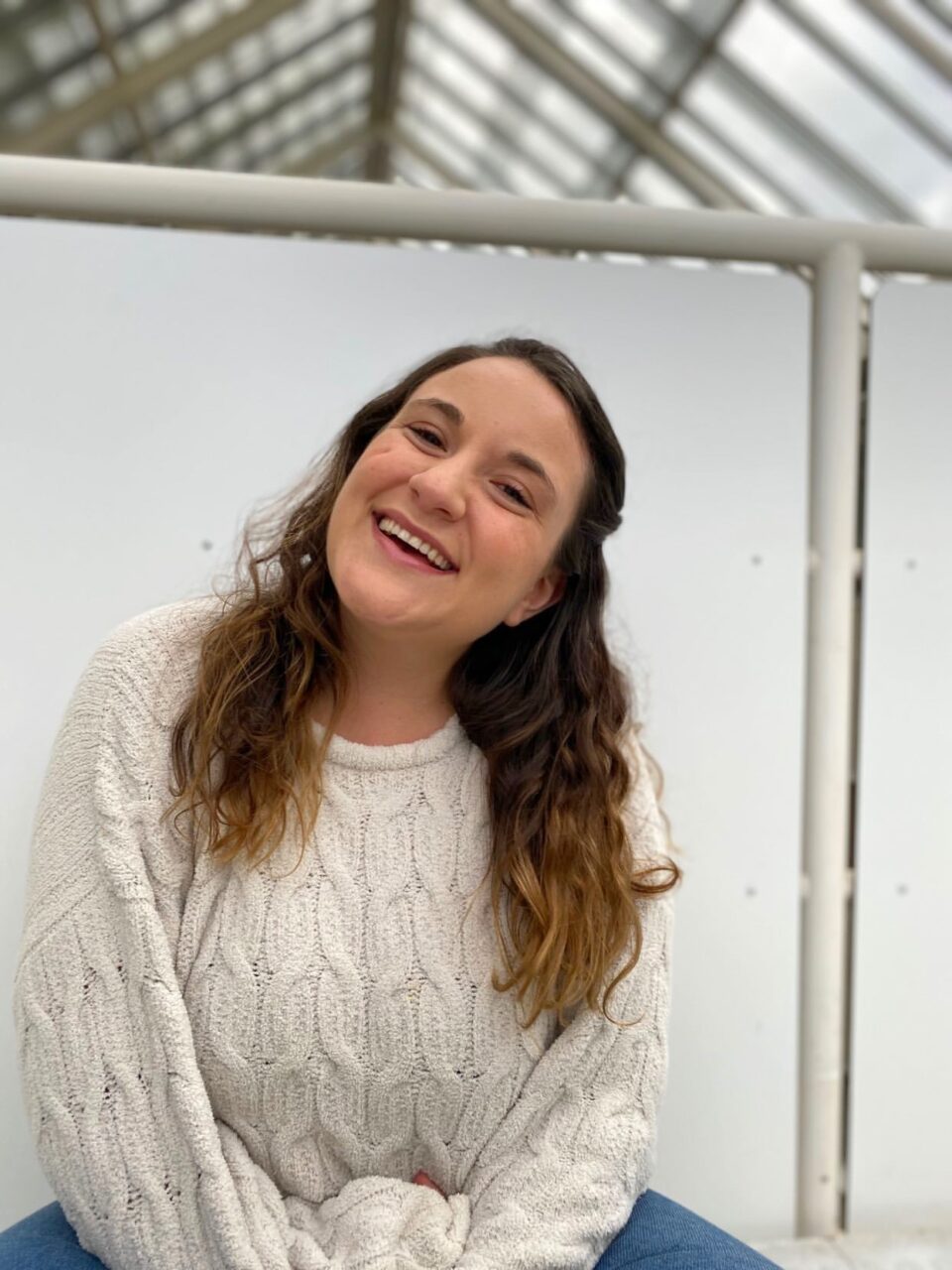
Abbie Richards (she/her) is a 25-year-old Researcher and Science Communicator from Boston, MA. Abbie has been engaged in environmental work since she was sixteen and is currently pursuing her second degree in Climate Sciences. She spends much of her time researching and combatting misinformation — something the environmental community is all too familiar with — while also co-running EcoTok, a collaborative environmentalist TikTok account and collective of eco-creators.
Raquel Martinez (RM): When did you first learn about the climate crisis? What was your immediate reaction?
Abbie Richards (AR): It feels almost cliche to say but when I was ten my parents took me to see An Inconvenient Truth and it really upset me. I hardly understood the nuance and depth of the climate crisis at the time, but I felt a tremendous sense of injustice. I didn’t decide that day that I would dedicate myself to environmental work (that didn’t happen for several more years), but that was the moment I learned about the crisis. I don’t remember too much more about my reaction.
RM: How did you first get involved in the climate movement?
AR: At sixteen I was on Google, looking for environmental organizations in my area and I discovered an environmental think tank in my town. They were very small- I think only 4 people actually worked there. They mostly did research to help grassroots environmental movements. I emailed them asking if I could be their intern. They weren’t actually looking for an intern (they didn’t even have any office space for one), but they said they liked my enthusiasm and took me on anyway. I just worked out of their kitchen.
RM: How does your identity inform your activism?
AR: Most of my activism comes in the form of education. I work really hard to make information and knowledge as accessible as possible because I believe that they should be. I think I come from a lot of privilege in that I had access to high quality education throughout my life, so I like the idea of taking that privileged education I received, turning it around, and using it to tear down the gates of academia. Understanding the climate crisis isn’t a privilege, it’s a right. So I enter this space from a perspective of education.
Additionally, I think being queer, Jewish, and neurodivergent generally have helped me to understand and prioritize intersectionality in my environmentalism. I would still rank those as less influential than my privilege though.
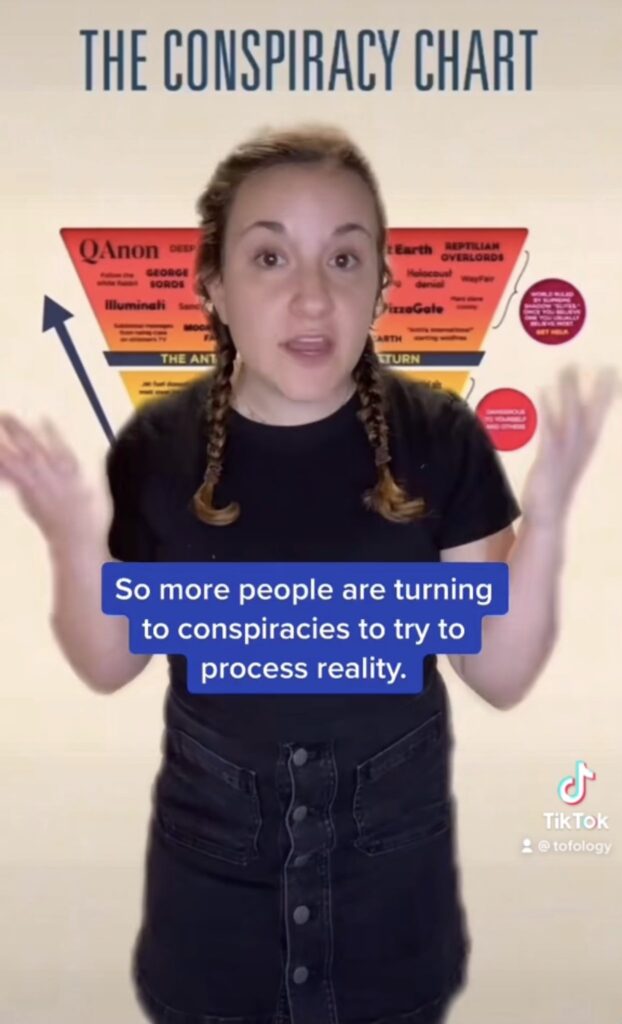
RM: When did you decide to start using social media as a tool for your advocacy and what led you to that decision?
AR: I posted a video on TikTok last year about why we should abolish golf. I didn’t expect it to go viral and become a whole phenomenon but it really took off. It allowed me to find other environmental creators and eventually join EcoTok. It was through doing all of that that I realized just how impactful social media can be.
RM: How do you personally cope with misinformation in and surrounding the climate space?
AR: I make videos about it. I either debunk mis/disinformation or discuss why it exists in most of my content. I really like digging at the roots of the problem in addition to addressing specific untruths themselves. I find disinformation fascinating and have chosen to focus most of my work on it- I’m working on my thesis on climate change and disinformation at the moment.
While I think it’s important to give people the tools to combat false information (for instance, correct statistics and accurate debunks), I also think we need to better understand and address the emotional and psychological reasons behind people’s willingness to believe it. Whether it’s denialism or doomism, mindsets perpetuated by disinformation inhibit climate action. That’s their purpose. So to stay ahead of disinformation, we must be thinking about preventing those mindsets and reaching people with accurate information before bad actors reach them with disinformation.
RM: What have you found is the most effective way to use social media to educate an audience?
AR: The most effective way to use social media to educate an audience is just whatever method feels best for you. For me, I do best making videos because I really enjoy getting to include personality, storytelling, and humor in my educational content. But I have friends using every imaginable platform and method. I know some people who are really great at making Instagram infographics, others who like short TikTok videos, then some who prefer longer YouTube videos. I have friends who best communicate through writing and others who best communicate through photography. I also have friends who aren’t communicators at all but are phenomenal researchers, scientists, artists, organizers, policymakers, and a million other things. And they utilize communicators like those of us at EcoTok to help spread their messages.
Basically, use whatever social media platforms and tools feel like the most authentic way to communicate your message. But I also want to stress that if you don’t want to “do the social media thing” that is also totally fine! There are so many vital roles to fill in this fight, on and off social media.
Understanding the climate crisis isn’t a privilege, it’s a right. So I enter this space from a perspective of education.
RM: How do you think young people can prevent the spread of misinformation in the climate movement?
AR: This is a great question! I think understanding the origins of climate misinformation is crucial for young people to prevent its spread. And for that reason, I want to highlight that the climate movement’s problem isn’t misinformation so much as disinformation. That might not seem like a big difference at first but I’ll explain why it really is. Misinformation is any information that’s incorrect regardless of intent to mislead. Disinformation is false information that is deliberately misleading.
When we talk about false beliefs surrounding climate change (whether it’s science denial, misrepresentation of the benefits of renewable energy, misrepresentation of various climate policies, etc), we aren’t talking about well-intentioned people simply not understanding the science and thus spreading misinformation. We’re talking about coordinated campaigns which are created and funded by powerful actors and designed in order to confuse the public and delay climate action. A lot of the time misinformation is an umbrella term used to discuss this problem more broadly (and that’s totally fine and accurate language to use). However, it’s also important to understand WHY these ideas are spreading. There are a lot of people invested in maintaining the status quo, business-as-usual burning of fossil fuels, and they want to delay taking action. Understanding their motives and tactics is a crucial part of combating misinformation.
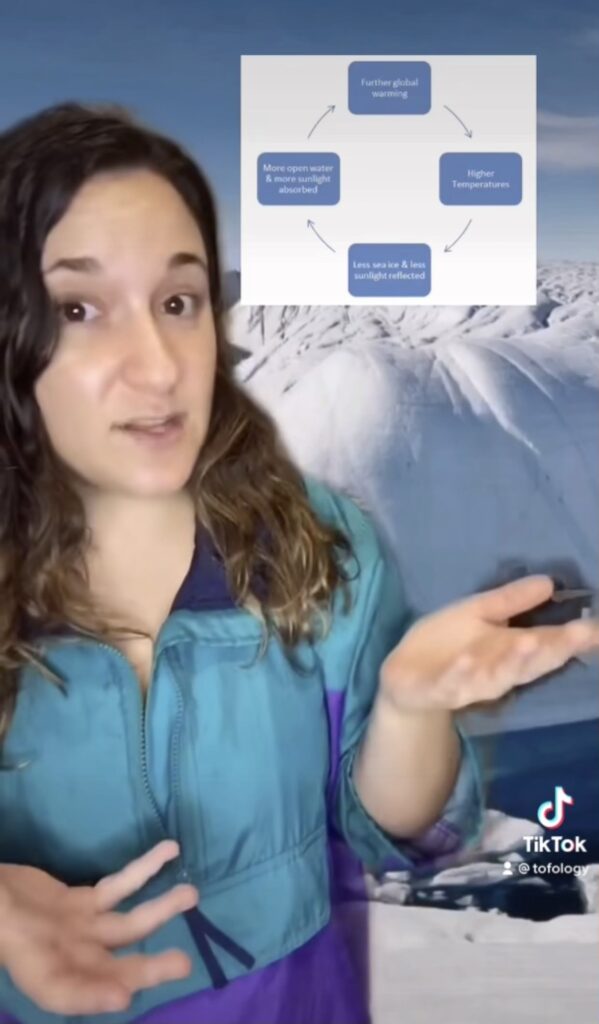
RM: What are some tips you could provide young people who are looking to follow a similar path in activism as you have?
AR: If you’re interested in science communication, just start! You don’t have to be perfect. You almost certainly won’t be. You’ll mess up and that’s totally OK! A lot of the time, people are scared to talk to crowds because they’re afraid they’ll mess up or be wrong. And sometimes you will be. But what’s important isn’t that you’re right or perfect all the time, what’s important is that you own up to and correct mistakes when you make them. And learn from those mistakes to be a better activist/educator.
Also eco-anxiety and eco-grief are super real emotions. We all feel them and it’s really important to acknowledge them. That said, if you want to do climate communication, it’s important to avoid climate doom. Making people feel hopeless doesn’t help motivate them to act. Also, there still is lots of hope so it’s really important that we don’t lose sight of it. Try to focus on solutions and pushing for action when you can.
RM: Who are some of your favorite youth activists and where can we find them?
AR: Obviously I’m biased towards a lot of my fellow EcoTok members. You can find all of them on TikTok and the whole list on our website.
RM: How can individuals support your work?
AR: Following my accounts, sharing and boosting my work, and reaching out to me if you have specific topics you want me to cover are all free ways anyone can support my work. I also have a Patreon if people want to fund my work. I don’t post any extra content there though. Because my content is educational, it is really important to me that it stays free.
All photos courtesy of Abbie Richards.
Answers may have been edited for length.
Want to read more? Check out the ACE Blog!
Join our Youth Action Network
More Blog Posts

Our Climate Wins Were on Display at the State of the Union
Today, the Biden Administration temporarily halted all pending decisions on 17 Liquefied “Natural” Gas (LNG) projects across the Gulf South.
Read More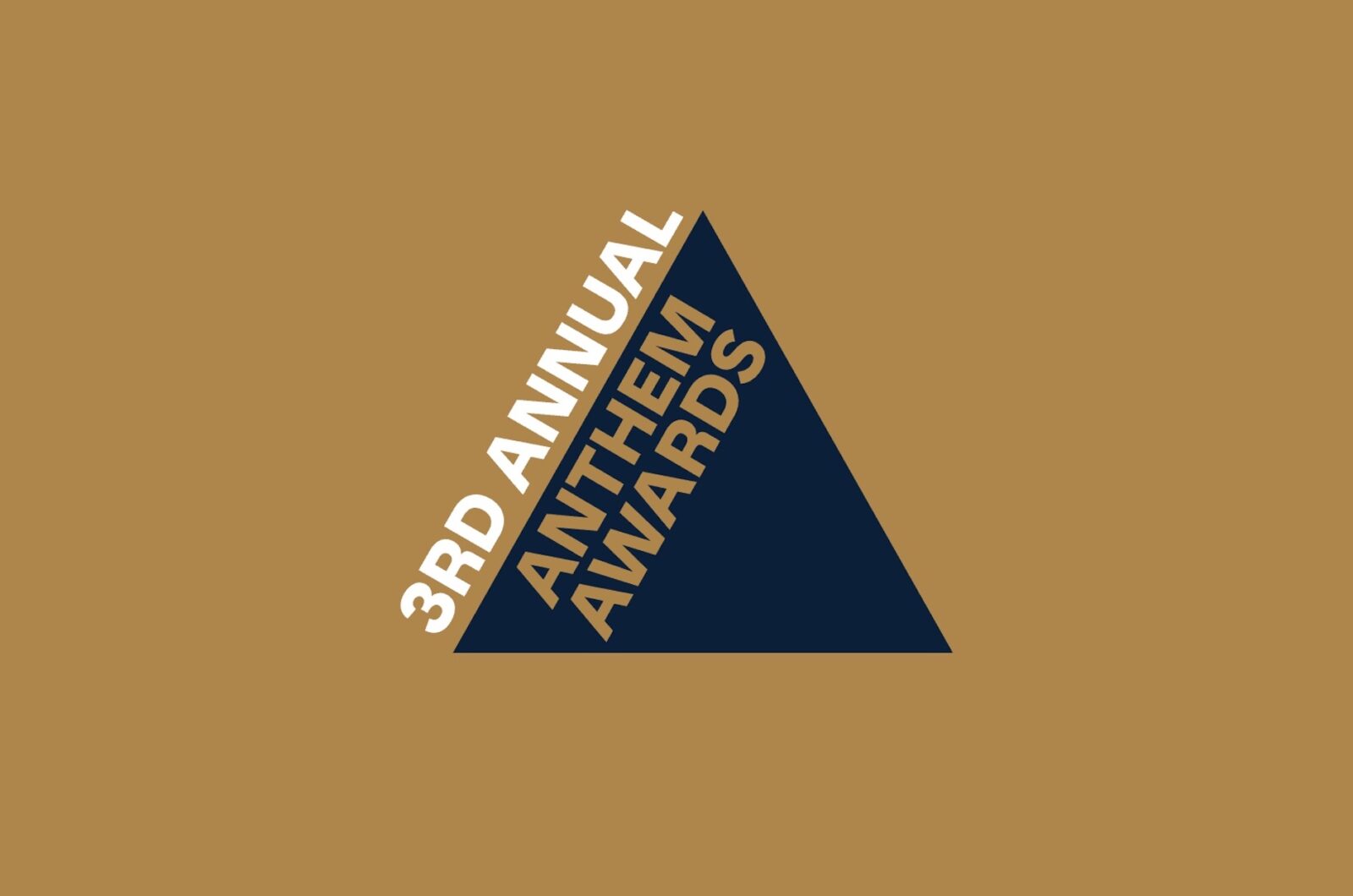
ACE Honored As An Anthem Awards Finalist
Action for the Climate Emergency (ACE) announced today that it won Bronze in Best Use of AI at the 3rd …
Read More
BREAKING: Biden Halts LNG Export Expansion
Today, the Biden Administration temporarily halted all pending decisions on 17 Liquefied “Natural” Gas (LNG) projects across the Gulf South.
Read More
